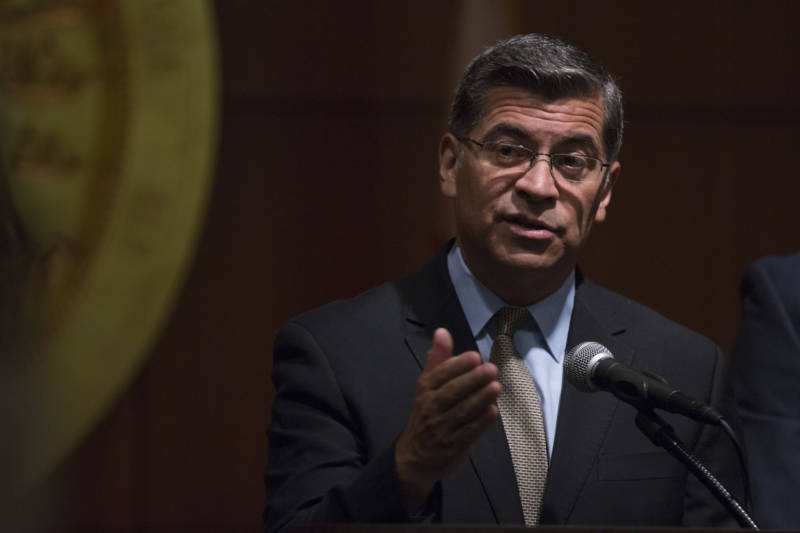State and San Francisco officials on Tuesday stepped up efforts to block a new federal rule that would allow health care workers to refuse medical treatment, based on their religious beliefs, to people such as women and LGBTQ individuals.
California Fights Trump Health Care Rule It Says Could Deny Care to Women, LGBTQ People

California's attorney general and the San Francisco city attorney said they filed court orders — or preliminary injunction motions — aimed at preventing the Trump administration’s new rule from going into effect on July 22. The rule could also cost the state tens of billions of dollars in federal funding, and the city of San Francisco nearly $1 billion.
They allege the “Conscience Rule,” which critics are calling the "Health care Refusal Rule," is unconstitutional and unethical in its potential for denying basic health care, including emergency care, to patients.
"This rule will permit providers who receive federal taxpayer funding to deny medical benefits and care to the very taxpayers that help fund the operations of some of these providers' programs," state Attorney General Xavier Becerra said Tuesday. "We believe in California that health care is a right, and should not be a privilege that only a select few have an opportunity to take advantage of."
The Department of Health and Human Services (HHS) said on its website that the rule “fulfills President Trump’s promise to promote and protect the fundamental and unalienable rights of conscience and religious liberty.”
The rule replaces one from 2011, which the HHS statement calls inadequate. It is designed to protect the religious rights of health care providers and religious institutions, NPR reported.
"These federal laws protect providers, individuals, and other health care entities from having to provide, participate in, pay for, provide coverage of, or refer for, services such as abortion, sterilization or assisted suicide," HHS said about the new rule.
Many California health care providers are worried the rule will harm LGBTQ people, women and other vulnerable communities.
"The idea that I would be able to face a patient coming into my office and say, 'I don't like your style of living; I don’t like your sexual relationship,' is unbelievable," said Tanya Spirtos, a Redwood City obstetrician and gynecologist.
"We support the right of physicians to define their scope of practice. Conscience protections are already guaranteed by federal law," said Barbara Levy, vice president of health policy at the American College of Obstetricians and Gynecologists.
"But a clinician's conscience cannot stand in the way of patients getting the care they need. Putting one's personal beliefs above the patient's needs is contrary to accepted principles of medical ethics," she added. "When a doctor feels, strongly based on moral or religious principles, that they're unable to meet a patient's needs, that physician must still ensure their patient's continuity of care."
San Francisco initially filed a lawsuit against the rule within hours of President Trump's announcement about it on May 2.
Other jurisdictions and groups pushing back against the rule with public statements or legal proceedings include the Los Angeles LGBT Center and Santa Clara County.
A statement issued by Becerra's office said the rule threatens billions of dollars in federal funding for California’s public health care and other federally funded programs that provide crucial health, education and labor services, including $63 billion for health care services such as Medi-Cal.
Failure to implement, or be in full compliance with, the rule could cost San Francisco nearly $1 billion in federal health care funding, according to the San Francisco City Attorney's Office. Those funds make up about one-third of the city public health department’s (SFDPH) total budget, nearly 40% of Zuckerberg San Francisco General’s budget and more than 60% of the budget for Laguna Honda Hospital.
"The effects of this loss would be nothing short of catastrophic for SFDPH and the City as a whole," the city's preliminary injunction motion said.
HSS did not return requests for comment.
